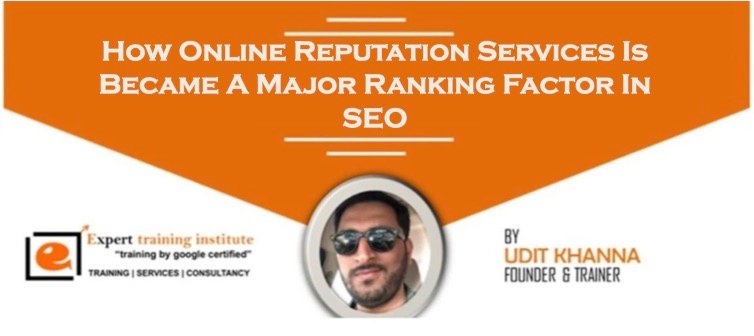Best 25+ SEO Interview Questions and Answers for Freshers in 2019
SEO optimization or SEO is the catalyst behind most online marketing activities. That is why SEO overwhelmingly dominates the digital media.
rch Engine This pervasive SEO effect in a range of activities including content marketing, traffic build up and social media campaigns have made SEO expertise the pathway to a lucrative career.
SEO is a big opportunity for young techies in the digital marketing sector. Here we discuss the SEO related questions and answers for job interviews for executives and managers.
Best 25+ SEO Interview Questions and Answers for Freshers in 2019
1. What is SEO and why is it so important?
Search Engine Optimization or SEO represents activities aimed at improving Search Engine rankings of websites, products, services or content. The improvements will be visible in the higher site ranking obtained in the unpaid, free, organic, natural or earned results.
Companies earmark hefty digital marketing budgets and teams with a major focus on SEO activities to bring more traffic to their websites.
Search engines rankings are vital and the first 5 searches on Google are most important in value. Google search results enjoy more trust and they are construed as authentic and specific. Now let us discuss some of the important questions and answers that a potential SEO manager needs to know.
2. What do you mean by World Wide Web?
The World Wide Web (WWW) or the Web was the invention of Tim Berners-Lee in 1989. The web is an information system of internet servers that contain web pages where documents and resources are formatted and supported by Hypertext Transfer Protocol or HTTP. They can be located by Uniform Resource Locators (URLs) and other hypertext links.
3. What is a Search Engine?
A search engine is a web-based software that searches and locates relevant information on the World Wide Web.
Search engines answer the queries with a list of search results.
4. What are the major search engines?
Google, Bing, Yahoo, Baidu, DuckDuckGo and Yandex
5. What is a website?
A website is a collection of web pages or formatted documents that can be accessed on the Internet. They are identified with domain names or web addresses. By typing a web address www.mytasker.com, a user will be taken to the home page of the website.
6. What is a Web server?
A web server is a computer program with an IP address and domain names that display web pages to users when requested. The web server accepts requests routed via HTTP. When a URL ‘mytasker.com/blog’ is entered on the web browser, a request goes to web servers carrying ‘mytasker.com’ as a domain name.
7. What is Web Hosting?
Web hosting is a service providing space for websites over the Internet. Web host enables viewing of a website via modem or a network by offering space on its server. Web hosting services are of different kinds and are used on the basis of needs and requirements of web developers.
8. Who are the Founders of Google?
Google was founded by Larry Page and Sergey Brin on 4th September 1998.
9. What is a Domain?
The domain is part of the network address describing websites and includes an email address, website address and Internet Protocols such as SSH, IRC, and FTP. In www.xyzwhoareyou. com, the domain is xyzwhoareyou.
10. What is a Domain Extension?
Domain extension is the notation at the end of web addresses. It can be a country code or a web category. Edu is a domain extension that specifies educational institution as well as a web category.
11. What is Crawling?
Web crawling is an automated process by which search engines pick up web pages for indexing. Web crawlers examine web pages, search for keywords, hyperlinks and content and load that information to web servers for indexing. To facilitate crawlers like Google Bots companies build sitemaps for making accessibility and navigation easier.
12. What is Indexing?
Indexing starts when crawling is over in a search. Google collects pages by crawling pages relevant to the search queries, and makes an index of them by adding specific words or search terms and locations.
Search engines answer the queries by looking up to the index and showing the most appropriate pages.
13. What is SERP?
Search Engine Result Page or SERP refers to pages displayed after a specific search query on a search engine. Apart from results, SERP might also show some advertisements.
14. What is On-Page SEO?
On page, SEO refers to all actions performed on the websites to earn a higher ranking and good traffic. On page, SEO aims at optimization of the content as well as the HTML source code of the web page. Some aspects of it include meta tags, meta description, title tags, and heading tags.
15. What is Off Page SEO?
Off-page SEO is linked with aspects that influence the search ranking of websites on the Search Engine Result Page.
They may include promotional activities, such as content marketing, social media and link building outside the boundaries of a web page to improve its search ranking.
16. What is a keyword?
The keyword is any word that serves as a key. Keyword in SEO can include key phrases and words included in the web content to help users find the specific website by entering relevant search queries on the search engines.
17. What is an Organic Result?
In SEO, organic result refers to a listing of the web pages most relevant to the search query. They are free or natural results. Ensuring a high ranking in the organic result is one of the objectives of SEO.
18. What does the term paid results imply?
Paid results in SEO are just the opposite of organic results and include advertisements that are displayed just above the organic results.
Website owners pay Google to display such ads carrying certain terms or keywords. Paid results appear when users enter a search query associated with those websites.
19. What is “Google Suggest” or “Autocomplete”?
Google Suggest is part of the auto-complete function of Google search engine. As soon as a user enters a word or letters over the search field, Google suggests many associated terms to the user in a drop-down menu. These suggestions are a bunch of frequently searched terms over the search engine.
20. What is a long tail keyword?
Long tail keywords are phrases contain more than 4 words making search results very specific. Long phrases are used by SEO experts to draw quality traffic to websites by reducing random traffic with the goal to increase lead conversion rates. Long tail keywords are easy to rank compare to single word keyword.
21. What are LSI keywords?
Latent Semantic Indexing or LSI keywords or semantically associated with the main keyword entered by users over the search engines. An example is, when On-Page SEO is searched in Google you can see “Searches Related to…” appearing at the bottom of the page.
22. How will you describe Heading tags?
In SEO, heading or header tags separate the heading and sub-heading of content from rest of the web page. There are 6 heading tags ranging from H1 to H6. They bring coherence to content and improve accuracy and keyword consistency for the search results.
23. What is Canonical URL?
Canonical URLs is the concept of selecting the best URL for the web pages. They are also called canonical tags that help in content syndication when multiple versions of the same page are there on the Internet. It addresses content duplication.
In the following example, many people would consider these URLs as the same. But technically they are different.
- www.example.com
- example.com/
- www.example.com/index.html
- example.com/home.asp
24. What is Page Title SEO?
This component of SEO sums up the content of a page accurately and can be optimized with keywords and other information to maximize visitor traffic.
25. How do you define URL?
Uniform Resource Locator or URL is a generic term specifying all kinds of web addresses found on the web.
URLs guide users to identify and locate resources and documents on the web. They contain internet protocols, IP address of the host and domain name along with other information.
26. What are Meta Descriptions?
Meta descriptions are HTML attributes providing an accurate description of a web page’s content. These serve as a preview of the web pages on the SERP page list.
Ideally, meta descriptions should not be more than 150 characters and enhance the full value of the web page. Greater user click-throughs will be the benefit.
27. What are Backlinks?
Backlinks are incoming links that help users to move from one web page to another web page.
When Google finds multiple quality backlinks to a particular web page, the page is treated as very relevant to a search query and leads to faster indexing and raises the organic ranking on SERPs.
These SEO Interview Questions and Answers will give you enough idea and range to get through your interview in a positive manner with confidence.
For – SEO Company in Mumbai








surely, sir , SEO is a big opportunity for young techies in the digital marketing sector. I have recently started my SEO course online. I saw your article SEO interview questions, searching the web. I must say it solved many queries of mine. I am more knowledgeable about SEO now than before. Thank you sir.